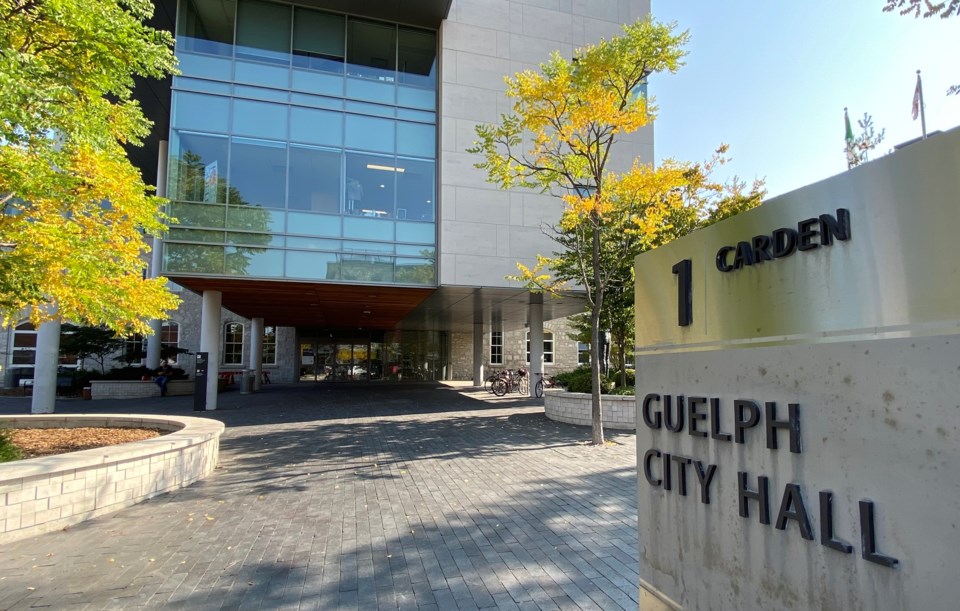Efforts to tackle climate change will play a reduced role at city hall next year as public services take a $3.58 million hit in the draft 2025 budget, released on Thursday.
Instructed by Mayor Cam Guthrie to deliver draft budget with a four per cent or less property tax increase, the preliminary spending plan from city staff features a 2.59 per cent jump, though it doesn’t include everything and any full increase won’t be known until January.
“Affordability was a critical priority when developing the 2025 draft budget at under four per cent,” Guthrie said in a news release. “This was a painstaking and challenging process, but the resulting property tax impact rate was certainly worth the effort to ensure Guelph residents and businesses keep more of their hard-earned money while our city continues to move forward.”
A property tax increase of 2.59 per cent means the average median property in Guelph, valued at $408,000, will pay $123.28 more than it did in 2024, acting-city treasurer Shanna O'Dwyer told GuelphToday.
A more than $44 million operating budget increase is proposed (to $595,384,569), with $13 million more attributed to general expenses and revenue, and roughly $9 million each for mayor and council, public services, and infrastructure, development and enterprise.
The biggest cut to services comes courtesy of the provincial government’s decision to shift the responsibility of recycling programs to packaging producers. Guelph’s shift is set for Jan. 1, resulting in about $1.51 million in savings for the city.
Other planned reductions include:
- reduced proactive forestry work and longer response times for non-critical tree-related needs ($200,500);
- lessened spending on energy and climate change initiatives ($153,867);
- reduced public waste drop-off hours ($413,100);
- decreased public outreach and education regarding solid waste programs, as well as the elimination of the curbside inspection program and composition audits ($158,080);
- elimination of the termite management program ($123,351)
- and extension of the city’s goal of achieving 40 per cent tree canopy coverage by 2070 ($111,810), among others.
In addition, user fees are set to increase by an average of two per cent, along with new fees to be collected. Among the new fees are some associated with fire safety inspections and investigations, special event picnic table rentals, and a mattress disposal fee.
There is also to be a five per cent reduction to youth subsidies for facility rentals, to 42.5 per cent from 47.5 per cent.
The draft budget also includes the elimination of nearly all city spending on plans to celebrate Guelph’s bicentennial in 2027, though because that money was to come from reserves there's no tax impact from cancelling it.
All that would be left is funding for a staff position to lead community fundraising efforts, O'Dwyer confirmed.
With the budget split into two parts this time around, under Guthrie’s direction, Guelph residents won’t know how much their property taxes are going up until late January. That’s when local boards and committees, such as the library, Wellington County social services and police, are set to present their budgets to council.
The draft budget, as it was publicly released, will be formally presented to council during a special meeting on Oct. 30, set to begin at 9 a.m. According to the agenda, released on Thursday, council will move into a closed session immediately after the staff presentation.
In order to achieve the draft budget, an increase of $8.4 million in additional property tax revenue is needed compared to 2024 levels; that’s a 2.59 per cent increase.
When the draft 2024-2027 budget was released last fall, it came with a 10.3 per cent property tax hike, and council finalized it in December at 8.52 per cent for this year.
At the time, it also included a 9.79 per cent hike in 2025, 8.03 per cent in 2026 and 7.33 per cent in 2027, though the budget is confirmed annually and changes can be made along the way.
In February, Mayor Cam Guthrie ordered city staff to prepare a 2025 confirmation budget with a tax increase of four per cent or less. His instructions also included breaking the budget into two pieces – one which city council has direct control over and the other featuring local boards and committees, such as police, library and WDG Public Health.
It’s the first part of the budget council is dealing with now. The boards and committees budget will be presented to council in January. Though council has no say over individual line items in those budgets, it does set the overall amounts those groups receive.
A series of mayor-led town hall-style meetings on the budget will be held Nov. 4 to 12, followed by the release of an updated budget between Nov. 13 and 15.
Council will hear public delegations regarding the budget on Nov. 19, during a special budget meeting set to begin at 6 p.m.
Councillors have an opportunity to propose and consider amendments during another special meeting, this time on Nov. 27.
The mayor then has 10 days to veto any amendments approved by council.
If no vetoes are issued, the budget is considered adopted.
Should the mayor veto one or more amendments, council has until Dec. 18 to override that decision with at least two-thirds support, meaning nine of 13 votes on council
Anyone wanting to register to speak to council during delegation night, or provide written comments for council’s consideration, must do so by 10 a.m. on Nov. 15.
To register, visit guelph.ca/delegation, call 519-837-5603 or email [email protected].
